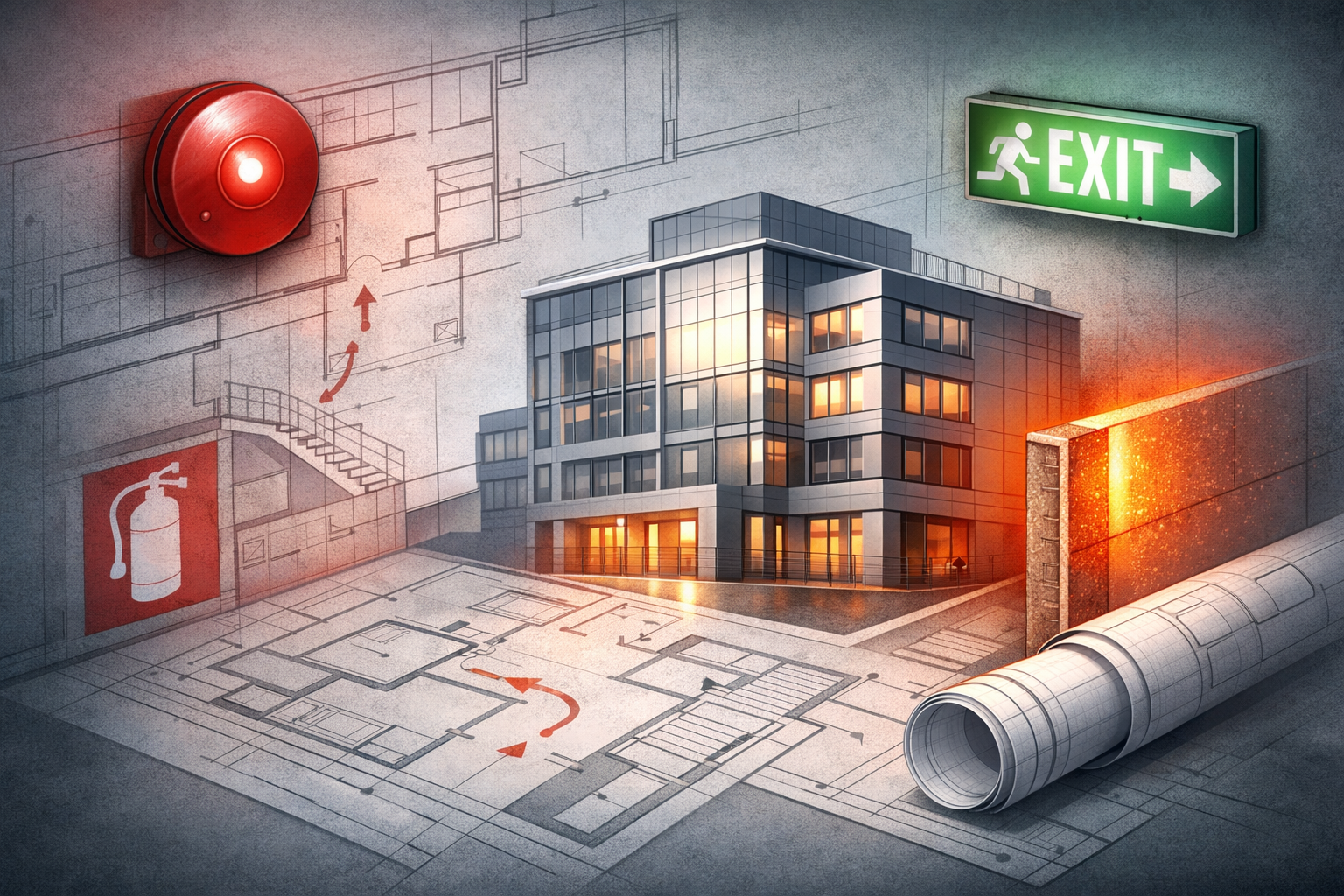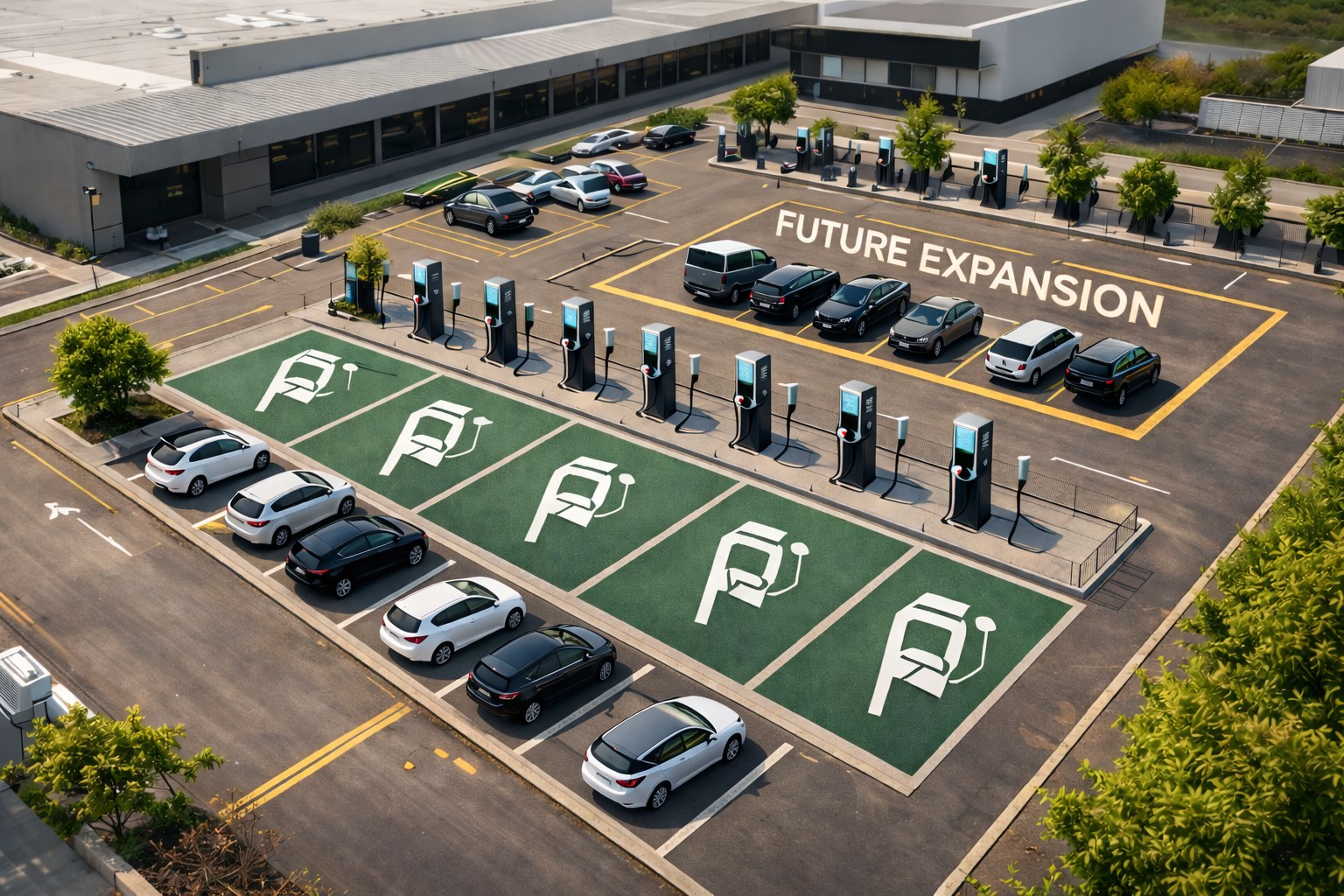Sustainable building design is no longer a niche concept – it’s an essential approach in modern construction. With energy efficiency, carbon reduction, and long-term sustainability at the forefront, electrical engineers play a crucial role in shaping the future of sustainable development. From optimising electrical design to integrating renewable energy sources, their expertise ensures that buildings are functional, efficient, and environmentally responsible.
At Highland Services, we understand the importance of smart, forward-thinking electrical solutions. Our team of experienced professionals specialises in designing and installing energy-efficient systems that align with sustainability goals, helping businesses and property owners future-proof their buildings.
How Electrical Engineers Contribute to Sustainable Building Design
1. Optimising Energy Efficiency
A key aspect of sustainable building design is reducing energy consumption without compromising performance. Electrical engineers develop tailored solutions that maximise efficiency by incorporating LED lighting, energy-efficient HVAC systems, and intelligent automation. By strategically designing electrical systems that minimise waste, they help create buildings that operate sustainably while lowering costs for property owners.
At Highland Services, we implement cutting-edge electrical design strategies to help our clients reduce their energy usage. Whether it’s upgrading lighting systems or optimising electrical distribution, our solutions prioritise efficiency at every stage.
2. Integration of Renewable Energy
Renewable energy sources are a cornerstone of sustainable development. Electrical engineers are responsible for integrating technologies such as solar panels, wind turbines, and battery storage systems into building designs. By ensuring these systems work seamlessly with a building’s infrastructure, they enable businesses and homeowners to generate and store their own energy, reducing reliance on traditional power grids.
Highland Services provides expert installation and maintenance of renewable energy solutions. Whether you’re looking to introduce solar power into your property or improve your building’s overall energy performance, our team is here to help.

3. Smart Building Technology and Automation
The rise of smart buildings has transformed the way we think about electrical design. Electrical engineers work to implement automation systems that improve energy efficiency and sustainability. From intelligent lighting controls to occupancy sensors and advanced metering systems, these technologies ensure that energy is only used when needed.
4. Sustainable Materials and Low-Impact Solutions
Sustainable development isn’t just about reducing energy consumption – it’s also about selecting materials that have minimal environmental impact. Electrical engineers carefully choose low-impact materials for wiring, insulation, and infrastructure to ensure compliance with sustainability standards.
The Future of Sustainable Electrical Design
As regulations around energy efficiency continue to evolve, electrical engineers will remain at the forefront of sustainable building design. Innovations such as energy storage solutions, microgrid technology, and AI-driven energy management will play a pivotal role in the future of construction.
At Highland Services, we are committed to staying ahead of industry advancements, providing electrical design solutions that meet the highest standards of sustainability. Whether you’re developing a new project or upgrading an existing building, our team can help you create an energy-efficient and environmentally responsible space.

Conclusion
Electrical engineers are essential to sustainable building design, ensuring that buildings are energy-efficient, future-proof, and environmentally friendly. Through smart electrical design, renewable energy integration, and innovative technologies, they help shape a more sustainable built environment.
If you're looking to incorporate sustainable electrical solutions into your property, Highland Services is here to help. Our expertise in electrical installations, energy-efficient upgrades, and renewable energy systems ensures that your building meets modern sustainability standards.
Contact us today to learn more about how we can support your project.




.png)